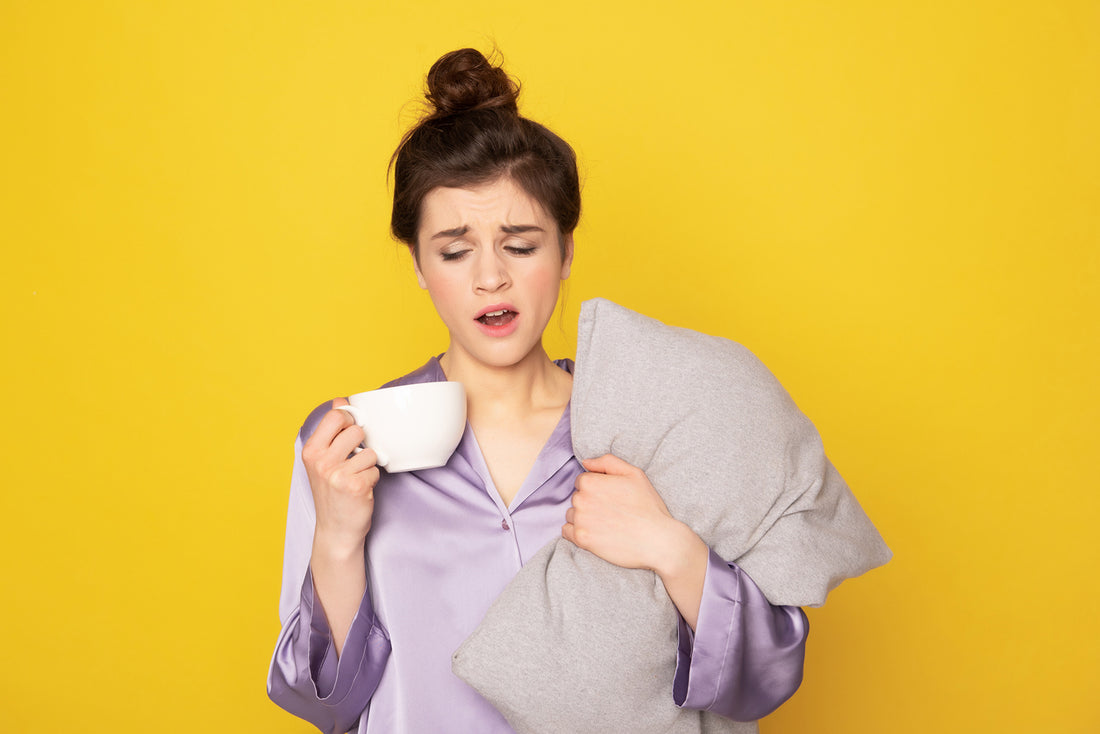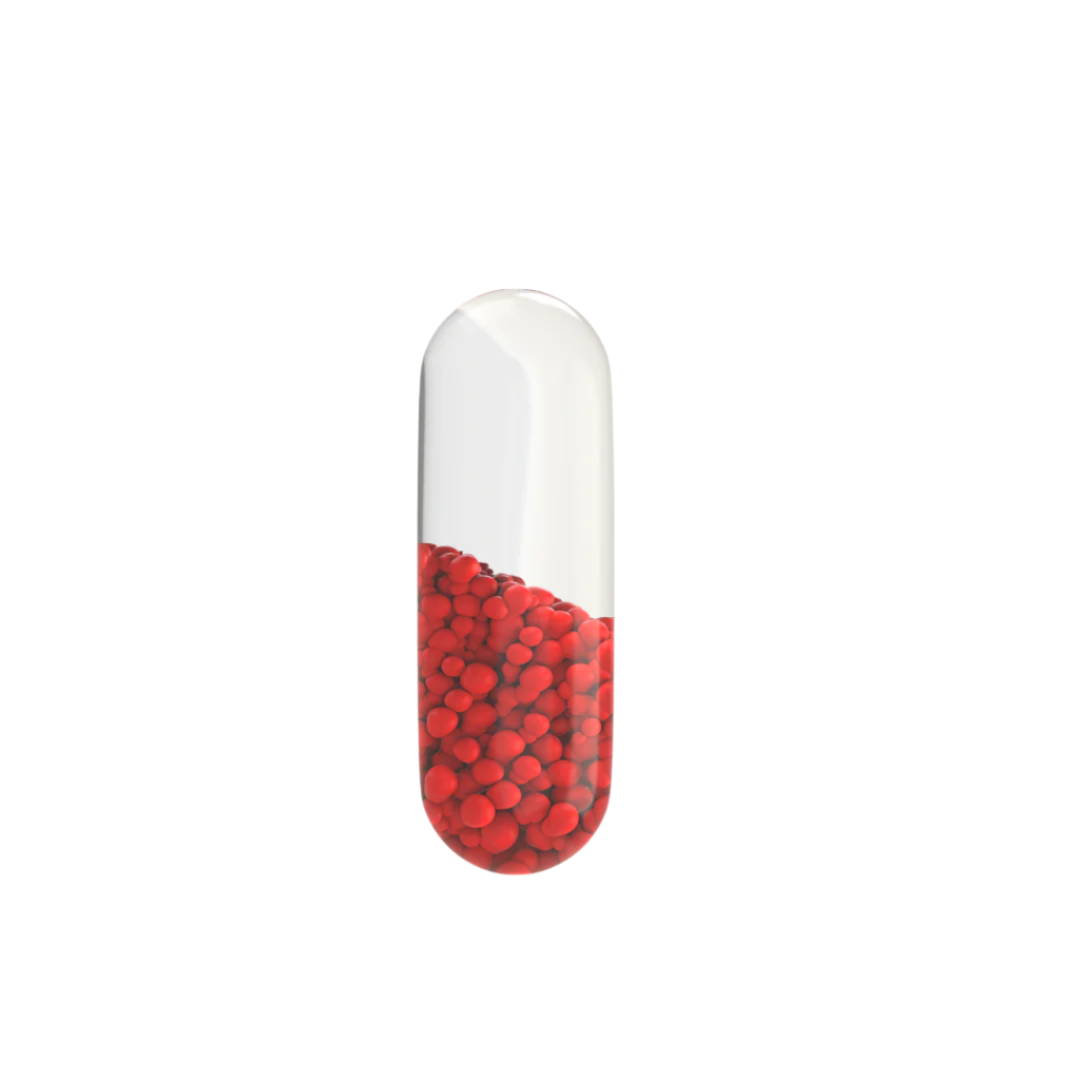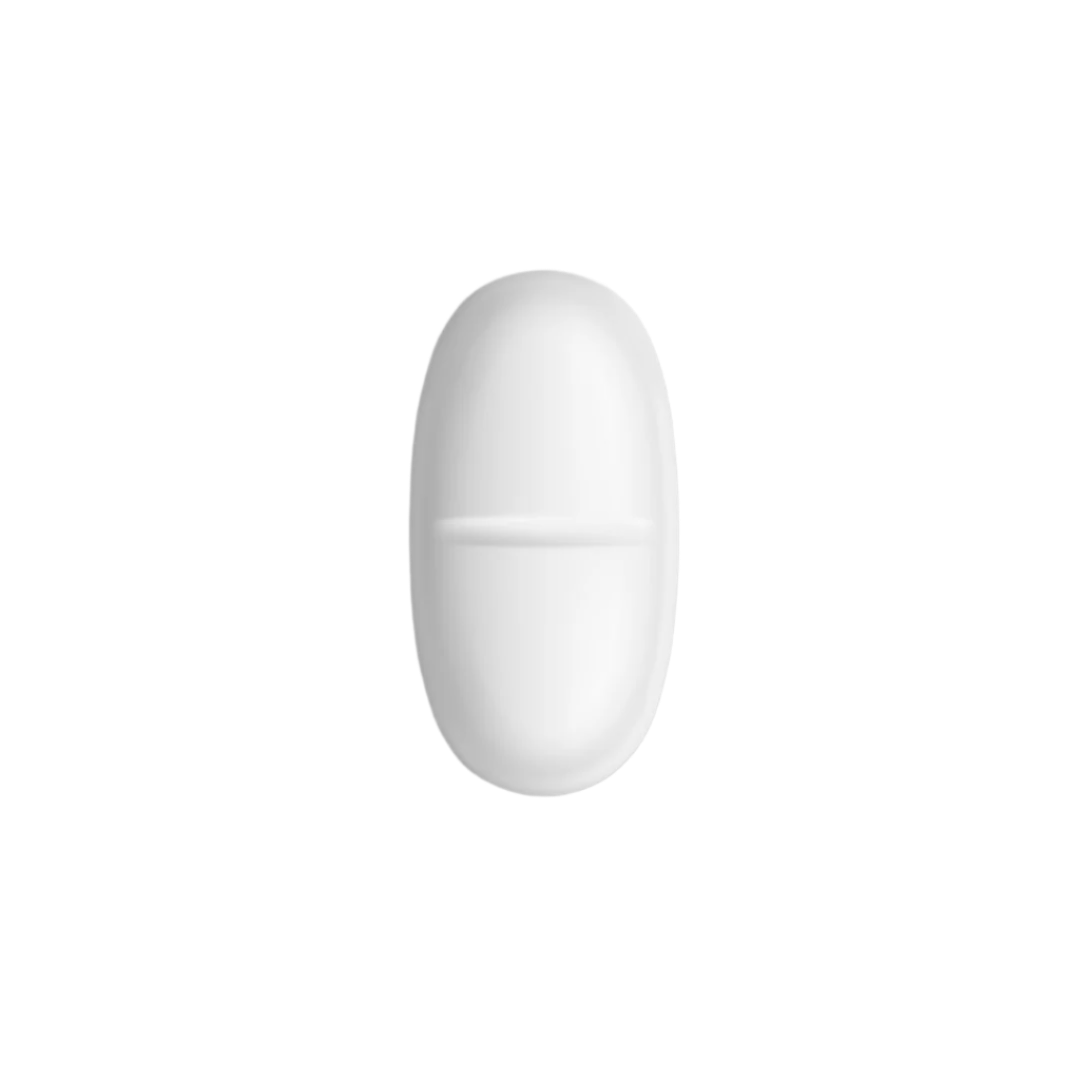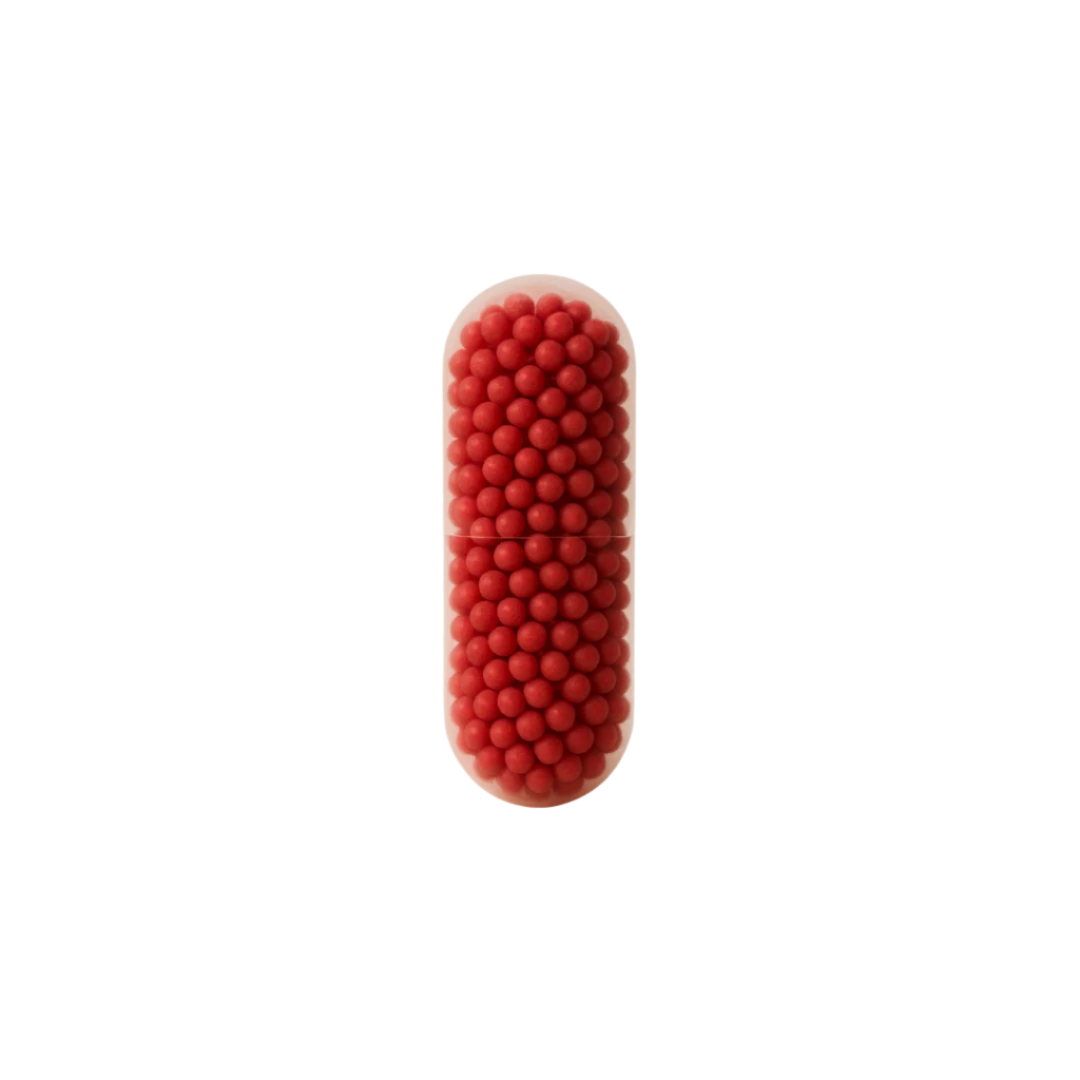Why Doesn't Coffee Wake Me Up?

Key Points
- Caffeine is an intense stimulant that wakes you up but can also have the opposite effect of making you more tired.
- There are a few factors that will affect how you feel in the morning, including your natural circadian rhythm, your sleep habits, and the amount of caffeine you've been drinking.
- Your circadian rhythm regulates the hormones that influence sleep. As the evening approaches, your body releases melatonin, which helps you fall asleep. If you're a night owl, you might find it harder to fall asleep at night, especially if you're using caffeine to stay awake.
- B・SYNC ON is the world's first clinically-tested wake-up pill. It is designed to combat the sleep inertia felt in the morning, improving your waking process and letting you start your day with more energy.
We all know the feeling - waking up groggy, tired, and mentally sluggish. First step? Brew a hot cup of coffee. What's supposed to happen is the caffeine in the coffee wakes you up and starts to stimulate your brain. However, if you drink too much caffeine, it can actually have the opposite effect and make you more tired. Since it's also an intense drug to start your day with, it can often be too much first thing in the morning.
Maybe you've also noticed that it just doesn't have the same effect as it used to. Everyone's body metabolises caffeine differently, so what works for one person might not for the next. Luckily, you can do a few things to wake up better and faster while gaining energy and hewing closer to your natural circadian rhythm.
Let's review some of the science of waking up, why coffee isn't cutting it, and how you can wake up better and faster in the mornings.
How Caffeine Wakes You Up
Coffee is a favourite first drink in the morning for many people, but there's a reason it doesn't always work as a wake-up agent. Caffeine is an intense stimulant that wakes you up but can also have the opposite effect of making you more tired.
The caffeine in coffee stimulates the central nervous system, which wakes you up and gets you going. However, if you drink too much caffeine, it can also have the opposite effect and make you more tired. Caffeine is also a drug, which means it can have an addictive quality and make you want to drink more coffee to get the same effect. Over time, you may notice less of an effect from drinking coffee in the morning.
Why Coffee Isn't Waking You Up in the Morning
Caffeine Tolerance
Some people have a much higher tolerance for caffeine than others. If you drink a lot of coffee daily, your body begins to adjust and require more caffeine to get the same effect. Additionally, if you drink coffee in the morning and then spend the rest of the day doing activities that are not caffeine-intensive, your body will start to metabolise the caffeine more slowly. This means that the caffeine will take longer to work its magic and wake you up, and you may experience more symptoms of caffeine withdrawal.
Fast Caffeine Metabolism
Some people just have a faster caffeine metabolism, meaning they can drink more caffeine and still feel the effects. If you're one of these people, you may find that drinking coffee in the morning doesn't have the same effect on you as it used to.
Dehydration
If you're dehydrated, coffee won't wake you up as much because your body is not as able to absorb the caffeine. Additionally, if you drink coffee in the morning and then spend the rest of the day doing activities that are not caffeine-intensive, your body will start to metabolise the caffeine more slowly. This means that the caffeine will take longer to work its magic and wake you up.
You Switched Beans, Brewing Techniques, etc.
If you've switched to a different type of coffee or changed how you're brewing your coffee, your body may not react the same way. Additionally, robusta beans have twice the caffeine content as arabica beans, so switching from robusta to arabica may create a difference in the effect of your morning coffee.
Why You Feel Sleepy in the Morning
There are a few factors that will affect how you feel in the morning, including your natural circadian rhythm, your sleep habits, and the amount of caffeine you've been drinking.
Your circadian rhythm is the natural body clock that governs when you feel sleepy and alert. Most people feel sleepy in the morning because their body is naturally trying to get ready for the day. However, if you're not used to waking up early, you may feel sleepy even if you have a normal circadian rhythm.
If you're not getting enough sleep, your body will start to try to make up for it by shutting down parts of your brain, even while you're trying to fire it up for the day! This means you'll feel sleepy and lethargic even if you have a normal circadian rhythm.
Tips for How to Wake Up Better Even When Coffee Doesn’t Work
There are a few things you should do to maintain healthy sleep hygiene and wake up better and faster in the morning:
Don't Use the Snooze Button

One of the best ways to stay awake in the morning is to avoid using the snooze button. If you're used to waking up at 7 am, but you hit the snooze button one time and end up waking up at 7:30 am, your body will start to associate 7 am with the snooze button, and you'll be more likely to hit it in the future.
Wake Up at the Same Time Consistently
Another way to avoid falling back into old sleep habits is to wake up at the same time every day. This will help your body become used to the idea of waking up early and avoid the feeling of grogginess in the morning.
Let in the Sun
If possible, try to let in some sunlight in the morning. This will help your body reset and get ready for the day. Natural light has a positive effect on your brain and mood and will help tell your body it is time to get up.
Start With Exercise
Exercise is one of the best ways to wake up and feel energised for the day. It helps to boost your body's morale and get your blood flowing. Additionally, exercise releases endorphins, which are natural painkillers and mood enhancers that help fight sleep inertia.
Eat a Healthy, Energising Breakfast
A healthy, energising breakfast is key to any good day. Try to eat something that will give you energy and help you to start the day off on the right foot. Opt for something that is easy to digest and doesn't contain a lot of sugar.
How to Wake Up Better in the Morning With Good Sleep Hygiene
Sleep hygiene refers to a set of healthy habits that help you sleep well. There are some things you can do to improve your sleep hygiene immediately:
Implement a Relaxing Nightly Routine
Falling asleep is half the battle, and a routine that is relaxing can help you to fall asleep faster and stay asleep longer. Try to establish a nightly routine that is calming and soothing. This might include winding down for an hour before bed, reading a book or meditation, avoiding screens in the evening, and avoiding caffeine and alcohol before bed.
Optimise Your Sleep Space (Bedroom)
Your bedroom is a sacred space, and you should take care to make it as relaxing and comfortable as possible. This might include selecting a comfortable bed and bedding, installing a noise-cancelling air conditioner or fan, and using calming aromatherapy or candles.
Keep Healthy Daytime Habits
It's important to keep healthy habits throughout the day to support a good night's sleep. Some exercise, healthy, regular meals, and a busy engaging work or study load will help you with sleep hygiene in the evenings.
Maintain a Consistent Sleep Schedule
It's important to maintain a consistent sleep schedule to help your body get used to waking up early. Try to go to bed and wake up at the same time every day, even on weekends. This will help your body adjust and get the most out of your sleep, fighting sleep inertia, and it won’t feel like a burden to get up early if you have to.
Avoid Some Foods and Beverages
Some foods and beverages can affect your sleep. Avoid eating large meals before bed, drinking caffeine late in the evening, and drinking alcohol before bed. Sugar, saturated fats, and other unhealthy foods can also affect your sleep negatively.
Leave Your Bed if You Can't Sleep

If you can't sleep, try to get up and move around for a little bit. This might help you to relax and fall asleep again. It’s important that your bed is only for sleep and not for too many other things. If your brain and body associate being in bed with falling asleep, it will make it easier to fall asleep naturally.
Place Limits on Screen Time

Limit your screen time in the evening to avoid watching television or using electronic devices in the evening. This will help to reduce the amount of light entering your eyes and help to promote a good night's sleep. If you use a device to unwind by reading or listening to music, try to use the blue light filters most devices have in their settings.
Be Mindful of Your Circadian Rhythm
Lifestyle changes and routines can help immensely in improving sleep and waking up in the morning. Overall, consistency is very important to wake up energised and refreshed. It's also important to be mindful of your circadian rhythm, which is the natural body clock that governs when you feel sleepy and alert [1].
It works by regulating the hormones that influence sleep. As the evening approaches, your body releases melatonin, which helps you fall asleep. If you're a night owl, you might find it harder to fall asleep at night, especially if you're using caffeine to stay awake.
If you're struggling to get to sleep and struggle with sleep inertia in the morning, it may be a good idea to try some of these tips to improve your sleep hygiene and wake up better in the morning.
If Coffee Doesn't Wake You Up, What Will?

Coffee is the default morning beverage for many people, but it's not the only option. If you’ve found that coffee doesn’t wake you up, there’s a better option.
B・SYNC ON is the world's first clinically-tested wake-up pill. It is designed to combat the sleep inertia felt in the morning, improving your waking process and letting you start your day with more energy.
It is consumed before going to bed, with the minerals, vitamins, and caffeine being released after 7 hours. After a full night's sleep and shortly before awakening, these substances will release, influencing your cortisol level, improving your mood, and supporting a better wake-up process.
Unlike the caffeine in coffee or other supplements, which kick in immediately and then wear off, B・SYNC ON is designed to delay the release for approximately 7 hours, and then the caffeine, vitamins B5 and B12, and zinc are gradually released. This has the bonus effect of improving concentration and performance not just in the morning but throughout the day.
Plus, B・SYNC ON contains only natural ingredients. Unlike caffeine, they are not addictive and won’t cause any harm to your body!

Whether coffee is or isn’t your preferred wake-up beverage in the morning, B・SYNC ON is the wake-up pill you can take every night for a better wake-up in the morning. Learn more and buy it online today!
Frequently Asked Questions
Why is caffeine ineffective as a tool for waking up?
Caffeine is an intense stimulant and can have the opposite effect of making you more tired. Additionally, caffeine is a drug and can have an addictive quality, making you want to drink more coffee to get the same effect.
Can I use B・SYNC ON if I'm sensitive to caffeine?
Yes. Some people are more sensitive to caffeine than others; however, B・SYNC ON contains a combination of caffeine, vitamin B5 and B12, as well as zinc to improve your wake-up process.
What is a circadian rhythm?
A circadian rhythm is the natural body clock that governs when you feel sleepy and alert. Most people suffer from sleep inertia in the morning because their body is naturally trying to prepare for the day.
References
- https://nigms.nih.gov/education/fact-sheets/Pages/circadian-rhythms.aspx







